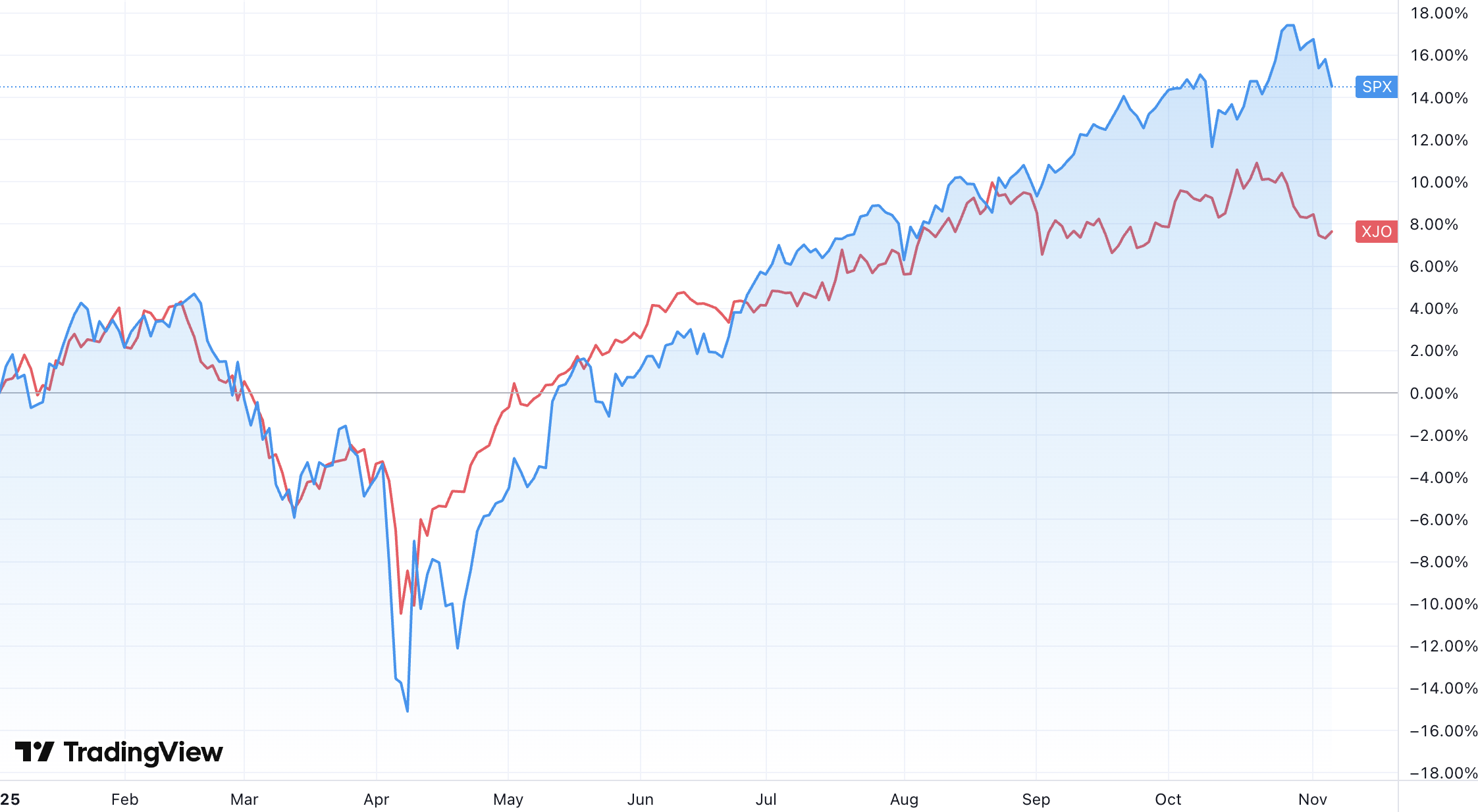2 new sparks that could burn down the stock market bubble
Despite what the free market purists might say, stock markets are still driven in no small part by emotion and perception. With valuations sky high and market concentration worries back in the news, emotions are heightened and things could take a turn for the worse.
To paraphrase Dante, the smallest spark can lead to the greatest flame.
With global stocks markets having been in a "bad news is good news" cycle since April, we might now be entering a phase where "big news is bad news".
Anything that challenges the finely-poised equilibrium of the current rally risks causing a sell-off, and there were two interesting developments this week that could do just that.
Tariff takedown
Nothing has moved markets in 2025 quite like US president Donald Trump's trade policies.
After all, it was Trump's Liberation Day tariff announcement back in April that both triggered the last big stock sell-off, and yet also gave rise to the latest leg in the ongoing rally. That rally has gone from strength to strength, with the S&P 500 up 35% from the April bottom and the ASX 200 up 20%.

Late this week, the US Supreme Court heard arguments in a case over the legality of Trump's Liberation Day tariffs. The case has already been heard in three lower courts, all of which found the tariffs to be illegal under US law.
According to Trump, if his ability to impose tariffs was removed, the "US WOULD BE DEAD WITH NO CHANCE OF SURVIVAL OR SUCCESS."
While investors might see the removal of tariffs as a net positive for global markets, anything that upsets the global trade apple cart could be enough to topple a precipitous equities rally, even if it's simply a small spark that leads to a bigger fire.
AI handouts
Earlier this week, OpenAI CFO Sarah Friar suggested the company would be seeking a government backstop for its infrastructure investments. It prompted further concerns that the current AI spending spree was becoming unsustainable.
Friar has since clarified that her words had been misinterpreted. “I used the word ‘backstop’ and it muddied the point,” she wrote in a LinkedIn post.
OpenAI CEO Sam Altman also pushed back on the idea. “We do not have or want government guarantees for OpenAI data centres," Altman wrote on X this morning. "Taxpayers should not bail out companies that make bad business decisions or otherwise lose in the market.”
But the story comes in the midst of US reporting season, where AI and tech stocks are selling off on any less-than-stellar results. Any sense that the funding for the big AI companies might be drying up is likely to panic investors already uneasy about current valuations and the capex-to-revenue mismatch.
At the recent Financial Leaders' Investment Summit in Hong Kong, HSBC CEO Georges Elhedery told the audience, "the scale of investment poses a conundrum for companies. While the computing power for AI is essential, current revenue profiles may not justify such massive spending."
On the same panel, General Atlantic Chairman and CEO William Ford said the AI sector was showing "irrational exuberance", recalling Alan Greenspan's comment from the Dot-com bubble. "There could be misallocation of capital, destruction, overvaluation," said Ford.
With many already priced to perfection, even the biggest AI names like Nvidia have been hit hard, with the chipmaker down 8.9% this week. Meta is down 8%, Microsoft down 6% and Palantir down 12%, amongst others.
The tech-heavy Nasdaq 100 is now down more than 3.5% since Monday's open and is on track for its worst week since selling off in the Liberation Day turmoil in early April.
Michael Burry, famous for betting big on the subprime mortgage crisis that precipitated the GFC, has now taken out a US$1 billion short position on Palantir and Nvidia. In other echoes of the GFC, ongoing US job cuts, especially in tech, have meant 2025 is looking like be the worst year for layoffs since 2009.
Burry has form for predicting market bubbles, and as they say, there's no smoke without fire. All it needs is a spark.
4 topics

